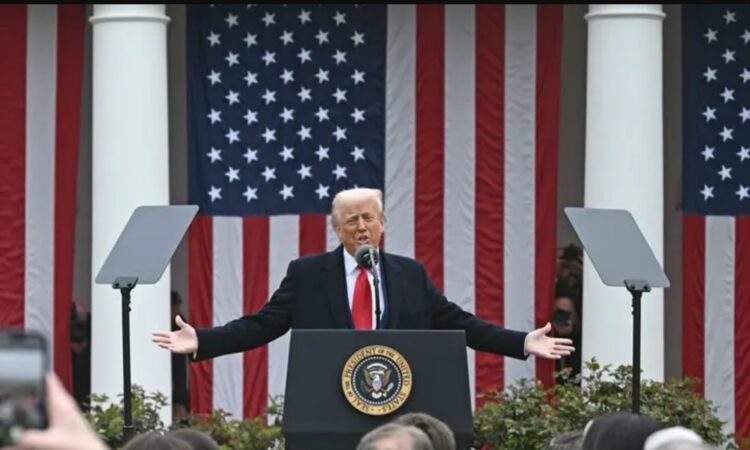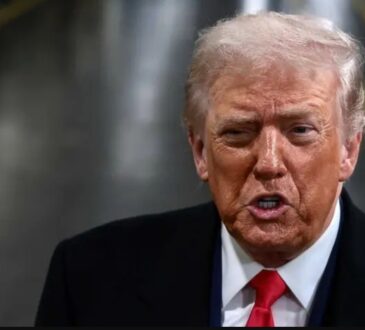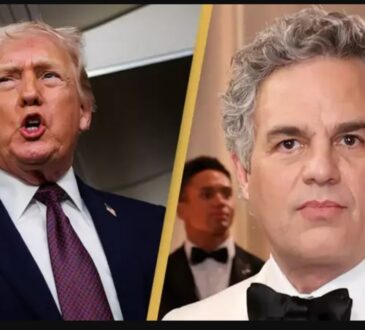Trump suffers mental collapse after ‘senile’ moment on stage in the middle of live Liberation speech

During a major policy speech, former U.S. President Donald Trump made several eyebrow-raising statements that left many viewers scratching their heads. The most notable moment came when he claimed that a staggering 94% of cars driven in Japan were actually manufactured there. This assertion immediately raised questions since major Japanese automakers like Toyota, Honda, and Nissan operate numerous factories across North America and other parts of the world, shipping many of those vehicles back to Japan.
The comments came as Trump announced aggressive new trade measures, including imposing a 25% tariff on automobiles imported from countries that don’t produce enough goods in the United States. He argued that nations like Japan and South Korea were taking advantage of America by maintaining high trade barriers while flooding the U.S. market with their products. However, his specific claims about domestic car production in these countries didn’t seem to match reality, prompting swift backlash online.
Social media quickly lit up with reactions, as many users pointed out that Japanese automakers have been building cars in American factories for decades, employing thousands of U.S. workers. Some critics suggested Trump might be confusing where cars are designed versus where they’re actually assembled. Others questioned whether he was simply misinformed or deliberately exaggerating to make his trade argument sound stronger.
The Japanese government responded cautiously to both the tariffs and Trump’s remarks, with officials saying they were considering all options for a measured response. Trade experts noted that while Japan could theoretically impose retaliatory tariffs, they have limited leverage in such a dispute with the much larger U.S. economy. Some analysts suggested Japan might focus on targeted measures affecting politically sensitive American exports rather than across-the-board tariffs.
Beyond the questionable statistics, Trump’s speech contained several other awkward moments that drew attention. At one point, he stumbled over the pronunciation of “Thailand,” nearly calling it “Thigh-land” before correcting himself. Later, after apparently thinking he had finished his remarks, he started to leave the stage only to be gently guided back by an aide to complete the formal signing of the trade order.
Throughout the address, Trump maintained his characteristic combative tone on trade issues, insisting that previous administrations had allowed other countries to take advantage of American workers for too long. He vowed his new policies would force trading partners to negotiate more fairly, threatening to match any foreign tariffs “dollar for dollar.” However, the combination of factual inaccuracies and unusual delivery left many wondering whether the tough talk was backed by solid understanding of global auto manufacturing realities.
The incident added fuel to ongoing debates about trade policy and how nations should respond to globalization’s challenges. While Trump’s supporters cheered his aggressive stance against what they see as unfair trade practices, critics argued that oversimplifying complex supply chains could lead to policies that might ultimately hurt American workers and consumers as much as foreign competitors.




